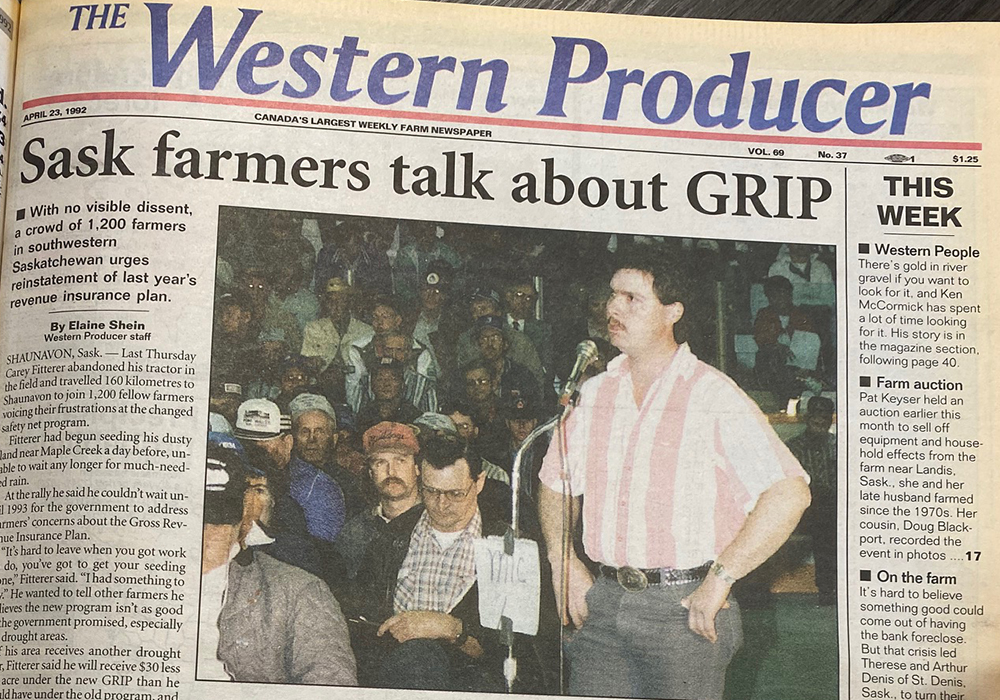For the next year, this column will mark The Western Producer’s 100th anniversary by taking a deep dive every week into a past issue of the paper.
Astute readers of this column may be wondering about the date of The Western Producer issue I’m writing about this week — April 23, 1992.
If you remember all the way back to last summer, I started this WP 100 project by writing about our very first issue in 1923 and have since been jumping ahead every two years.
Read Also

Don’t undermine the backbone of agriculture
Agriculture Canada and the dedicated public servants who work every day to support Canadian agriculture are a crucial pillar of the sector and they need support — not austerity.
It’s meant all the issues featured in this column were published in odd-numbered years.
So why am I writing this week about a newspaper edition published in 1992?
The answer is a little embarrassing.
Back issues of The Western Producer are collected in big books called bound volumes, and until recently were stored at the newspaper’s office in Saskatoon.
However, when it came time for me to retrieve the bound volume for the spring of 1991, it was nowhere to be found. I’m sure it’s somewhere — just misfiled — but after a few minutes of fruitless searching, I decided to give up and move on.
So here we are, April 23, 1992.
There was an interesting story in this issue about Otto Lang, the long-time Liberal cabinet minister and minister for the Canadian Wheat Board when supply management was introduced in the 1970s.
It appears Lang had either disagreed with his cabinet colleagues at the time or had since experienced a change of heart. At any rate, he was now saying the government had been wrong to bring in supply management.
“We all know that marketing boards and supply management are wrong, we all know Gene Whelan was wrong,” he told a grain analysts workshop, referring to the Liberal agriculture minister who pushed through orderly marketing for products such as dairy and poultry 50 years ago.
Lang predicted that Canada’s supply management boards would disappear under the General Agreement on Tariffs and Trade, which was the precursor to the World Trade Organization.
It’s now 32 years later, and supply management, while still under attack, is still kicking.















